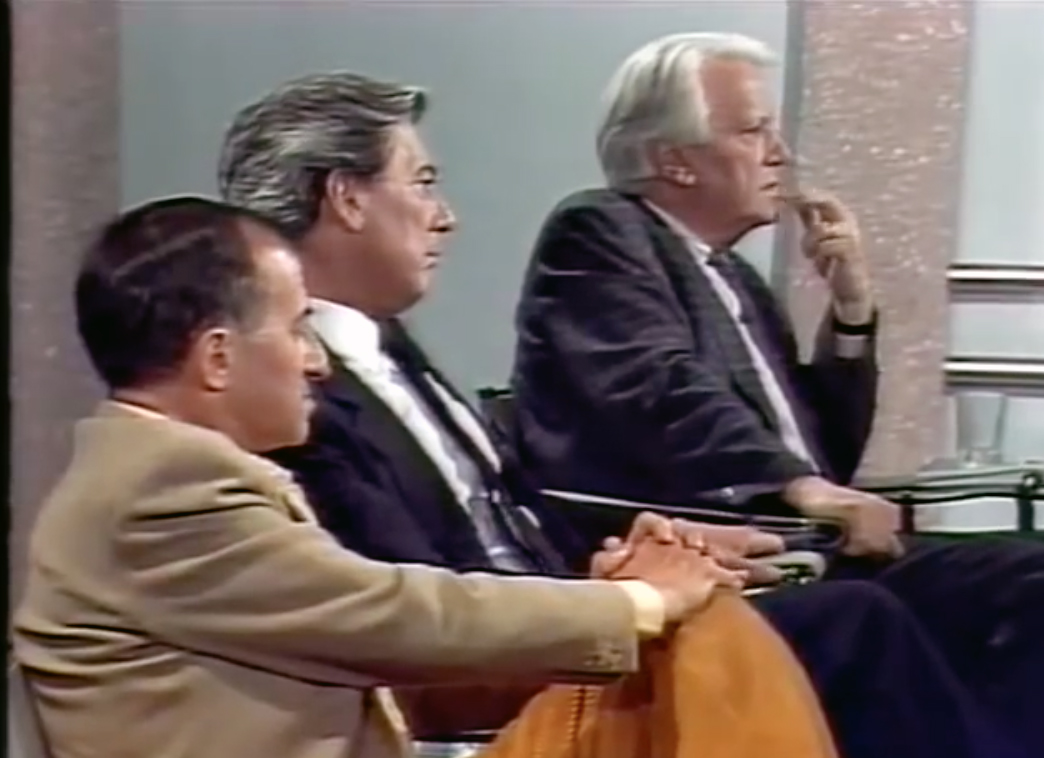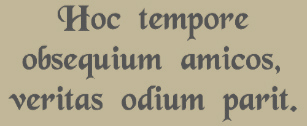The opinion of psychologists
‘Where are the men?’ the little prince at last took up the conversation again. ‘It is a little lonely in the desert…’
‘It is also lonely among men’, the snake said.
—Antoine de Saint-Exupéry

It may be assumed that Tere simply followed the dictates of traditional morality, but that if I told my testimony to a professional psychologist I would find the much sought after oasis. Nothing further from the truth. In the same multi-family apartment complex where I lived with Tere’s family, I met the psychologist Angelica. She read a version of my Letter and other texts that bear certain similarities with what is written in the narrative part of this book. Let’s see what happened when the psychology teacher read my stuff. I will cite my diary and later some of her letters that we exchanged. I had spoken to Angelica on the phone and I surprised her at the moment when she read the climax of my Letter:
July 25, 1998. I interrupted Angelica right in the passage of ‘The Medusa’! She said that it’s very good; that she doesn’t read out of obligation but because she’s enjoying it a lot; that the psychological references are very good and that she congratulates me. She still doesn’t get to the toughest pages. Right there I interrupted her.
August 12 and 13. Nothing new she told me. We only talked about my next trip. Even when I mentioned Medusa, nothing came out except that she said ‘I had read Laing again’.
Compassion doesn’t exist.
Two years later, I sent Angelica the manuscript of my second book. As psychologists are colleagues of psychiatrists, I was particularly interested in having her tell me something about such a ruthless exposé of psychiatry: something that had never before come from the pen of a fellow countryman. In 2000 she sent me an email note: ‘I think you already handle more psychology than I do. What’s more, I feel myself behind in clinic stuff; just finished my sabbatical and started writing a textbook. I really think you have a lot of easiness to express your ideas’.
Thus the same story and the same lack of compassion of two years ago was repeated. Although Angelica intended to flatter me, her missive upset me. Not only a couple of years before she hadn’t told me anything—like Tere—about the tragedy in my family with my parents. Now she wasn’t saying a word to me about the profession that helped ruin my teenage life. I must say that her position is similar to that of some friends who have focused exclusively on the literary aspect of my Letter: something that doesn’t interest me. The sole purpose of writing had been for someone to tell me something about the agony I suffered as a teenager; that it would show some indignation towards the aggressors and a society that allows such things!
Angelica had gone to live in La Paz. Due to her lack of compassion I decided to get away from her as I decided to get away from Tere. To my surprise, four years after her letter, Angelica visited Mexico City; she went around to find out my new phone number, insisted that we meet and talk in a restaurant. As a mature man, I was determined to tell Angelica that many people who, as a lad, I had taken for friends hadn’t really been friends. I alluded to the case of Tere, her former neighbour, and tried to present my arguments along the same lines to what was written in previous pages. Remember that a few years before I had sent her some drafts similar to the ones I publish in this book: texts about what I have felt about the country in which I was born. In July 2004, just a few days after we last saw each other at the restaurant, Angelica sent me an email:
Hi Caesar:
I read your book again. It’s okay. I think some things seemed too racist to me, for example your comments about your country. Your work loses value by your stupid racism: nacos, etc.
In Mexico naco designates the clumsy and uneducated Indian who emigrates to the city. If Angelica hadn’t been indoctrinated in a Marxist-Leninist university, she wouldn’t have been offended. She is a white woman who had a very handsome son, and at that time she was living with another much smaller son whose absent father was European.
You who seek to be treated as a human being don’t treat others as what you ask. It really gave me deep sadness to see you so aggressive and deteriorated.
I don’t think I told you the end of the dream. I was crying and that’s how it was. When I went on the subway, I became depressed and I broke down crying. Believe me, I esteem you more than I imagined. I really wanted to see you and hug you but your mask prevented me. Hopefully you can read this email.
A hug,
Angelica.
I didn’t answer her. The restaurant meeting had been forced, and it will surely be the last time I see her. But I would like to say something about the mask she mentioned. Angelica had had a dream, one of those that portray a situation. She had dreamt of myself as cold and distant, with a black mask; and in the dream she saw a woman who seemed responsible for all that; whom, within the same dream, Angelica related to my mother. In real life I was cold to her at the restaurant, and that was in dramatic contrast to the friendly lad Angelica had met in her apartment almost twenty years earlier. I wore a black mask in the dream and in real life I was dressed in black on my appointment with her (she was all dressed in flashy red).
Regarding her comment that she highly esteem me, I’ve also heard it from people I don’t want to see. Like Tere and Angelica, many hypocrites say they esteem me. But very few say anything meaningful to me when I open my heart to them by placing a homemade impression of the Letter in their hands: the core of my pain and the key that opens the door to my later life. Although Angelica is a professor of psychology, she didn’t show any compassion for what I told in that epistle. And from the other texts she read, it didn’t occur to her that if my father had agreed to emigrate I’d never have written a derogatory line about Mexico, although I’d have written about the United States. In her mind my cry of loneliness before a culture that is no longer mine appeared as ‘stupid racism’ (in my eleventh book in Spanish and Daybreak in English I address the issue of the word ‘racism’). More serious is that the psychology teacher had less compassion than Tere. The latter at least told me she was devastated; that only when she had the strength would she resume reading my Letter, and that at one point her eyes clouded when she read me. The professional psychologist didn’t even have that hint of pity.
It is worth saying that in 1985 Angelica had yelled at me horribly during an argument in which she agreed with my mother. And it was my mother with whom Angelica was talking about me that year! (although, unlike Tere, Angelica did it over the phone). The psychologist interpreted my belated resentment as if I was ‘aggressive and deteriorated’. Ironically, she saw me like this when I was enormously robust compared to the twenty-something lad of yesteryear. People get used to the docility of people damaged by their parents and with low self-esteem, and a change for the better is seen as a bad thing. I have only been ‘deteriorated’, to use Angelica’s word, when due to lack of a knowledgeable witness I couldn’t confront older women (Angelica and Tere are older than me).
Many years ago I witnessed how Angelica scolded her three-year-old blondish son with the threat: ‘I’m going to cut your balls!’ Betito, the European’s son, began to cry. Angelica and Tere say they esteem me. The truth is that there are many people who, like them, lack empathy for the feelings of others. What they estimate is not the real person, only a facet or one-dimensional image that they have of the person. Whoever is lucky enough to have a friendly ear, someone with whom to communicate the dimensions of the soul, knows that trying to transmit the secrets of the heart to a fellow without empathy is like speaking to Golem. Lack of empathy always has the same cause. The last time I saw her, Tere told me a creepy story perpetrated by her grandfather with his children. Once one of his sons was twelve years old, he took him to another city to abandon him. Tere’s grandpa told him that from that day on he had to subsist on his own. He didn’t even take him with a relative or acquaintances. He left him on the Mexican streets and never saw him again in life.
Tere and Angelica were, like the trio in the Cineteca gathering, victims of mistreatment. And not only that. Like those of the Cineteca they have buried the feelings of anger towards their parents. Ironically, the repression was greater in the psychology teacher than in Tere, who at least told me the story of her grandfather, or the filmmakers, who also spoke about their past. The more terrible the abuse of the parent and the greater the repression, the less empathy the daughter will develop towards her son (we can already imagine the toll that constant threats of castration can cause in a little boy of three years).
The analysts
There will be those who, after reading the above story, will think that there are not the psychologists, but the psychoanalysts the experts in deep psychology: professionals who take an interest in the lives of their clients, especially in the terrors of their childhood. This is a myth. I won’t repeat the exposé from my previous book on psychoanalysis because no one currently believes in its cornerstone. Freud said that his ideological edifice rested on his discovery of the Oedipus complex: that parents turn out to be a source of sexual desires for the child. It takes being too stupid, or seeing Freud as an infallible guru, to believe such a thing.
For many years Alice Miller practiced her profession as a psychoanalyst in Switzerland. In her first three books, Das Drama des begabten Kindes (The Drama of the Gifted Child), Am Anfang war Erziehung (translated as For Your Own Good) and Du Sollst Nicht Merken (Thou Shalt Not Be Aware) Miller believed that her discoveries were not incompatible with psychoanalysis. But in the late 1980s and early 90s she openly broke with her profession with the publication of Der gemiedene Schlüssel (The Untouched Key), Das verbannte Wissen (Banished Knowledge) and Abbruch der Schweigemauer (Breaking Down the Wall of Silence).
People like Miller, Jeffrey Masson, and others have found that an analyst is someone trained not to listen to his client. Before I became familiar with her thinking, which helped me distance myself even more from psychoanalysts, I used to hang out with a couple of young Lacanian analysts: Solbein and Hector Escobar. The same year that I gave copies of my manuscript to Tere and Angelica I gave another to the Escobars. Hector, who had studied psychology, loved it and devoured it in a day and a half. In a cafe he talked about my literary skills—as I said, something that irritates me to be told—and also spoke as a psychoanalyst: ‘The problem arose with that self that your mother deconstructed’. Hector was very cordial and warm, but his analytic term (‘deconstructed’) was cold and far from what my pages actually screamed (compare it with my metaphor ‘a dagger in the heart’). Solbein also liked my book and it was she who, when I sat with them in the cafe, brought up on the table the subject of the manuscript I had given them. But Solbein uttered an icy comment: she said she didn’t notice many differences with the cases she saw in her office. It was as if someone were simply telling a Gulag survivor that his story was not dissimilar to other zek stories! The way she concluded her comment was horrifyingly dry:
‘Those are common clinical experiences’.
The analyst’s words remind me neither more nor less of the infamous Dr. Amara when he read the epistle to my mother. Faced with Amara’s evasiveness in his office, I asked him: ‘But what do you think of what I say, that the cause of my problem was my mother?’ In my previous book I tell that Amara answered: ‘It’s myopia’ and that he explained that neuroses exist in every family, and that mine was just one more neurotic family. In addition to this incredible similarity, Solbein told me that the analytic thesis she was writing referred to mystical stages in people who had had absent parents. I wrote in my diary that I was surprised that she wasn’t moved by the tragedy of the physical torture my parents inflicted on me: getting out of bed every day after sleeping for only a few hours, something that has nothing to do with ‘an absent father’. Referring to their comments, in my diary I noted that these Lacanians ‘don’t touch the people, nor the Subject they talk about so much, but they invalidate him by speaking objectively about him’. Although Hector was much warmer, he listened to his wife without realising how terrible terms such as ‘clinic’ sound to those who seek consolation: a word that Angelica had also used in one of her letters. For an autobiographer immersed in the humanities, the repulsiveness of language in psychology and psychoanalysis is discovered in the following anecdote.
At the time when I gave my manuscript to the Escobars I used to eat at a restaurant in downtown Coyoacán in Mexico City, an extremely populous place. For the hermit, few things are more execrable than the crowd, the street vendors and the noise. As I didn’t have a kitchen in my home, I suffered greatly from having to fight my way through the human swarming every day when I went to eat. But, oh miracle, when I met the Escobars in that place I knew that the sacrifice of having gone there for weeks had been worth it. Out of dignity I hadn’t spoken to them on the phone to ask what they thought of my text. I hoped the initiative would come from them. But just like the day I ate with Tere in Coyoacán, my heart burned to know what the young analysts would say about my life. The daily and painstakingly crossing that crowd of Neanderthals, I told myself, was worth it to find them! (incidentally, in those days they both looked like Iberian-type whites). And it is that in my imagery prior to the meeting in the cafe I imagined a compassionate and understanding Solbein who explained to me, with her knowledge, my written confessions. But when in real life I came to what I thought would be an oasis of understanding, I found only sand. The intimate manuscript on the great odyssey of my life simply describes ‘common clinical experiences’.
 Mesoamerica’s Amerindians from the Olmecs to the Aztecs (2,500 b.c.e. to 1521 c.e.) were true bastards: a culture of serial killers even of their own children—see the middle of my book Day of Wrath.
Mesoamerica’s Amerindians from the Olmecs to the Aztecs (2,500 b.c.e. to 1521 c.e.) were true bastards: a culture of serial killers even of their own children—see the middle of my book Day of Wrath.







